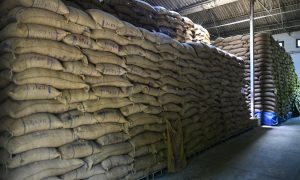Wheat output in Africa and South Asia will suffer severely from climate change by 2050, modelling study shows

Leading crop simulation models used by a global team of agricultural scientists to simulate wheat production up to 2050 showed large wheat yield reductions due to climate change for Africa and South Asia, where food security is already a problem.
The model predicted average declines in wheat yields of 15% in African countries and 16% in South Asian countries by mid-century, as described in the 2021 paper “Climate impact and adaptation to heat and drought stress of regional and global wheat production,” published in the science journal Environmental Research Letters. Climate change will lower global wheat production by 1.9% by mid-century, with the most negative impacts occurring in Africa and South Asia, according to the research.
“Studies have already shown that wheat yields fell by 5.5% during 1980-2010, due to rising global temperatures,” said Diego N.L. Pequeno, wheat crop modeler at the International Maize and Wheat Improvement Center (CIMMYT) and lead author of the paper. “We chose several models to simulate climate change impacts and also simulated wheat varieties that featured increased heat tolerance, early vigor against late season drought, and late flowering to ensure normal biomass accumulation. Finally, we simulated use of additional nitrogen fertilizer to maximize the expression of these adaptive traits.”














